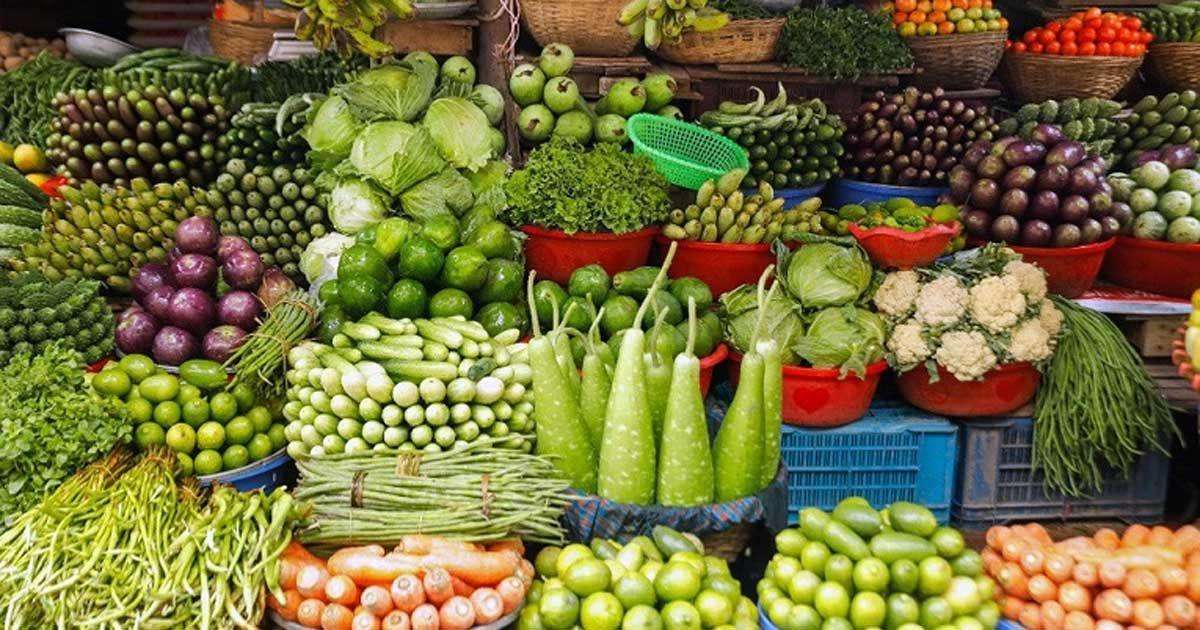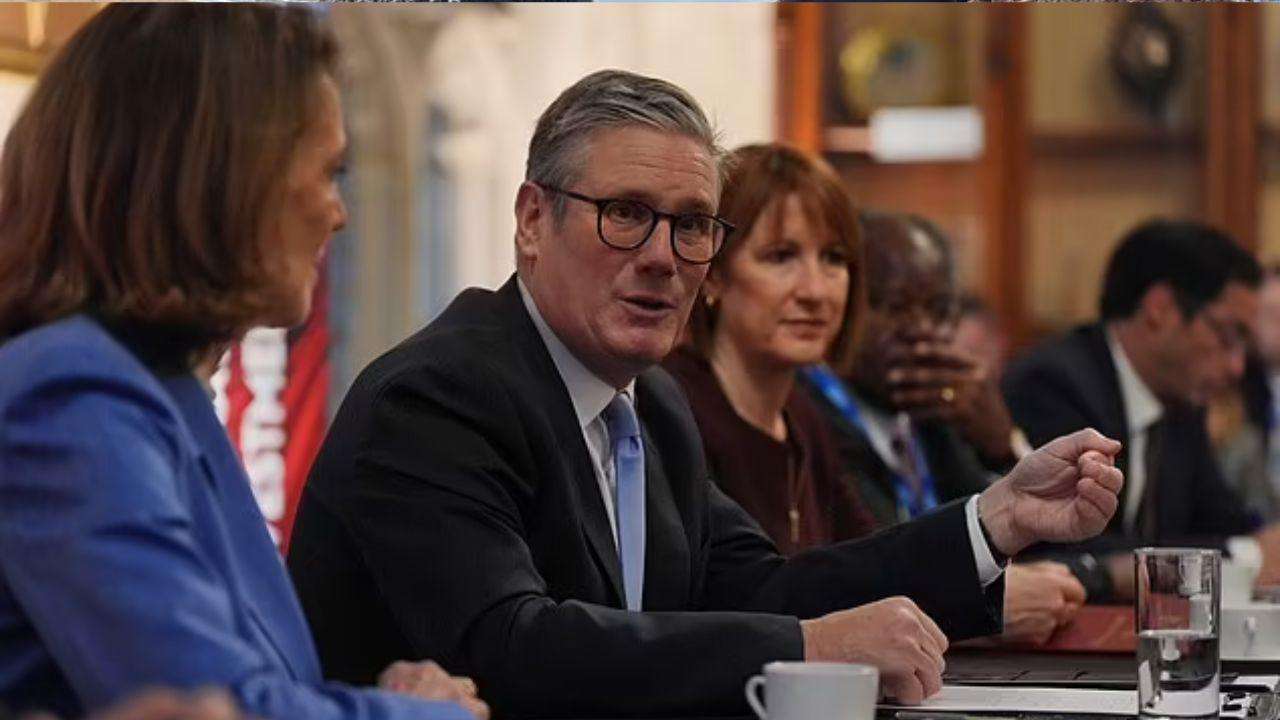The interim government of Professor Dr Mohammed Yunus has been in a catch -22 situation as major importers of the consumer commodities had closed connections with the dictator Prime Minister of Sheikh Hasina, and some of them are engaged in manipulating the market by reducing the import of daily necessities, sources said.
Bangladesh imports wheat, edible oil and sugar to meet domestic demands as local production can meet less than 5.00 per cent of total demand, source said.
The interim government should have short- and medium-term policy to control, monitor and stabilize the market of commodities and give a sigh of relief to consumers, said top business leaders.
Sheikh Hasina -- the brutal dictator and last Prime Minister of Bangladesh, who ruled Bangladesh for 15-year plus-- had to quit power on August 5, 2024.
The regime of Sheikh Hasina that lasted from January, 2009 to August 5, 2024, was the darkest period in the history of the country.
Prices of commodities have increased in the local market as the country has experienced two deluges in recent two months resulting in substantial loss of crops. Most of the commodities are being sold around 100 per kg with some vegetables are being sold at 120-140 per kg.
A Alam Group that has plundered the banking sector and siphoned millions of dollars out of the country, and Bashundhara Group, one of main patrons of the previous regime of dictator Sheikh Hasina, are major importers of the commodities and have been under the closed radar of the present government.
The import of essential commodities has to be maintained to control prices in the market and within the reach of consumers, sources said.
It is very tough to bring new importers that will import commodities into market and help stabilize the markets, source said.
The government should have regular meeting with top business leaders and politicians to monitor the market, said a leader of the Federation of Bangladesh Chamber of Commerce and Industry (FBCCI) while talking to The Dazzling Dawn.
City Group (teer brand) , Meghna Group (Fresh brand), Merin Vegetable Oil Limited (Nurjahan brand), Nurjahan Vegetables Oil Limited, Jesmin Vegetable Oil Industries, TK Group (Teer brand), A Alam Group (murog brand ), SA Oil Refinery Limited (Muskan brand) , SA Oil Refinery Limited, Elias Brothers (Dada brand), Mostafa Vegetables Oil Industries Limited (Mostafa brand), MM Vegetable Oil products Limited, Rubaya Vegetable Oil Limited, Bangladesh Editor Oil Limited, Shun Shing Edible Oil (Seven Circle Bitumen –Veola and Olien) and Editor Oil Limited ) Kazi Editor Oil Industry are major importers of commodities edible oil in the Bangladesh market, sources in the Bangladesh Trade and Tariff Commission said.
City Group has a daily production capacity of refining 2000 tonnees of edible oil and yearly 600,000 tonnees of edible oil per year, Meghna Group has a daily production capacity of refining 2000 tonnes of edible oil and yearly 600,000 tonnes of edible oil per year, City Group (teer brand) , Meghna Group (Fresh brand), Merin Vegetable Oil Limited (Nurjahan brand), Nurjahan Vegetables Oil Limited daily production capacity of refining 2000 tones of edible oil and yearly 600,000 tonnees of edible oil per year, , Jesmin Vegetable Oil Industries, TK Group (Teer brand) refining 2000 tones of edible oil and yearly 600,000 tonnees of edible oil per year, S A Alam Group (murog brand) has a production capacity of 420 tonens of vegetable oil and 126,000 tonnes of oil yearly, SA Oil Refinery Limited (Muskan brand) has a daily production of refining 2000 tones of edible oil and yearly 600,000 tonnees of edible oil per year, SA Oil Refinery Limited, Elias Brothers (Dada brand) 2000 tones of edible oil and yearly 600,000 tonnees of edible oil per year, Mostafa Vegetables Oil Industries Limited (Mostafa brand) has a daily production capacity of 1000 tonnes and 300,000 tonnes of oil per year, MM Vegetable Oil products Limited, Rubaya Vegetable Oil Limited2000 tones of edible oil and yearly 600,000 tonnees of edible oil per year, Bangladesh Editor Oil Limited has a daily production capacity of 500 tones of oil and 150,000 tonnes of oil, Shun Shing Edible Oil (Seven Circle Bitimen –Veola and Olien) has a daily production capacity of 1000 tones and 300,000 tonnes of oil yearly and Editor Oil Limited ) 2000 tonnes of edible oil and yearly 600,000 tonnees of edible oil per year, according to in the Bangladesh Trade and Tariff Commission said.
Meanwhile, the National Board of Revenue (NBR) has asked banks to provide account details of chairmen of five well-known business groups in order to scrutinise their tax compliance.
The Central Intelligence Cell (CIC) of the NBR asked for details of Salman F Rahman, vice chairman of Beximco; Nazrul Islam Mazumder, chairman of Nassa Group; Mohammed Aziz Khan, chairman of Summit Power International and Ahmed Akbar Sobhan, chairman of Bashundhara Group. The tax detective office also ordered banks to furnish information about persons related to them and firms owned by them, according to a statement by the NBR released today.
The tax administration said its CIC has started a special inquiry into the allegation of tax evasion by the persons who made a lot of wealth.
As such, the tax intelligence cell has prepared a list of tax dodgers based on specific information and by analysing media reports.
Meanwhile, S Alam Vegetable Oil Ltd and S Alam Super Edible Oil Ltd have unpaid value added tax (VAT) and consequent penalty worth over Tk 7,000 crore, as they allegedly evaded VAT through various means, including by presenting lower purchase and sales data in VAT returns between 2019 and 2022, according to an audit by the NBR's VAT wing, according to newspaper report.
During the period, the two companies "evaded" Tk 3,538 crore in VAT, for which they were fined another TK 3,531 crore, the audit report says.
The audit was carried out by the field office of Customs, Excise & VAT Commissionerate, Chattogram, and was subsequently reviewed by a five-member committee headed by an additional commissioner, Chattogram VAT Commissionerate, which drew the same conclusion.
Of the amount, S Alam Vegetable Oil Ltd allegedly evaded Tk 1,917 crore and S Alam Super Edible Oil Ltd Tk 1,621 crore in three years from the financial years 2019-20 to 2021-22, according to the audit report submitted in October 2023 and the subsequent review report submitted in May 2024.
Meanwhile, prices of commodities in the international markets have risen that also discourages importers to reduce the import of commodities. Source said the holy Ramadan will begin in March and the government should plan ahead to stabalist the market in the coming days.
Meanwhile, the Daily Star recently visited the kitchen markets in the capital's Kazipara, Shewrapara, Kochukhet, Ibrahimpur, Farmgate, and Karwan Bazar and found that vegetable prices have surged.
Pumpkin was being sold for Tk 70-80 per kg, an increase from Tk 50-60 a week ago, and Tk 35-40 a month back.
Pointed gourd was priced at Tk 100-120 per kg, up from Tk 60-70 a week ago, and Tk 50-60 a month earlier.
Mushfiq Mia, a rickshaw puller from Paschim Tejkunipara, expressed worries about the soaring vegetable prices.
"Meat and fish have already become too expensive for us. If the vegetables also become unaffordable, what will we eat? How can I support my family?" he told The Daily Star at the Karwan Bazar kitchen market.
Echoing these worries, Jashim Uddin, a private job holder, said his daughter loves tomato curries, but he cannot buy tomatoes for Tk 260 per kg.
"Just three weeks ago, I bought tomatoes for Tk 160 per kg, and last week, they were over Tk 200,"
He alleged that the new government is indifferent to the price hike of vegetables.
"We haven't seen any effective measures from the government, apart from some drives in the kitchen markets. Prices of essentials will not come down unless the government dismantles the traders' syndicates," Jashim Uddin said at Karwan Bazar.
Traders blamed incessant rain over the last few days and flash floods in some vegetable-growing districts for the price hike.
Round aubergine was being sold for Tk 180-200 per kg, a rise from Tk 160-180 just a week ago and Tk 100-140 from a month earlier.
Long beans were selling for Tk 120-160 a kg, up from Tk 80-100 last week and Tk 60-80 a month ago.
Bitter gourd was priced at Tk 100-120 per kg, compared to Tk 80-100 the previous week and Tk 70-80 a month back.
Green papaya costs Tk 50-60 per kg, up from Tk 35-40 a week ago and Tk 25-30 a month earlier.
Prices of leafy greens have also increased, with each bundle weighing 250-300 grams sold for at least Tk 30 yesterday, up from Tk 10-20 a month ago.
Green chillies was priced at Tk 360-440 per kg yesterday, up from Tk 320-400 a week ago and Tk 240-320 a month earlier.
Abu Jafor, a vegetable wholesaler at Karwan Bazar, claimed that incessant rain and flash floods damaged vegetable crops at different parts of the country, contributing to the price hikes.
The prices of broiler and Sonali chickens have also gone up, with broiler chicken selling for Tk 200-220 per kg yesterday, up from Tk 180-200 last week and Tk 170-180 a month ago.
Sonali chicken is now priced at Tk 280-300 per kg, an increase from Tk 260-280 a week ago and Tk 240-250 a month back.
However, egg prices have remained unchanged this week compared to last week. Eggs were being sold for Tk 160-180 per dozen, up from Tk 150-160 a month ago.
Hilsa fish has long been out of reach for the ordinary people. Hilsa was being sold for Tk 2,100 per kg (each piece weighing 1 kg), a rise from Tk 1,700 last week and Tk 1,600 a month back.
Ghulam Rahman, former president of the Consumers Association of Bangladesh, yesterday said traders attributing the price hike to rain and flash floods was merely an excuse.
"We need to verify whether flash floods have affected the vegetable-growing regions. If not, then it is just an excuse."
He suggested increasing supply and fostering competition among the traders.
"If we can ensure competition among the traders, the prices of essentials will come down," he said.
He urged the government to take necessary measures, including strict market monitoring, to keep the prices of essential affordable.
Fisheries and Livestock Adviser Farida Akhtar yesterday urged the government to declare eggs as an essential food item, reports the UNB.
Speaking at an event marking World Egg Day 2024 at the capital's Krishibid Institution Bangladesh, she said eggs should be available for all citizens, regardless of their income or social background.
Blaming syndicates for driving up egg prices, the adviser said that the government is taking measures to address the issue.
"Market inspections are going on, and wholesale prices [of eggs] have already started to fall. Prices will be stable soon," she added.
Meanwhile, Adviser to the Ministries of Finance and Commerce Dr Salehuddin Ahmed said that the prices of commodities are very much related to the production and supply while the government is very much aware about the possible steps for controlling the prices of commodities.
"We're very much aware about the matters which are related to trade and commerce. Another colleague (Dr Wahiduddin Mahmud) of mine is also looking after the Ministry of Planning. Usually, we're used to such matters," he said while replying to queries of reporters at the Ministry of Finance at Bangladesh Secretariat.
The Adviser earlier held a meeting with the country director of the Asian Development Bank (ADB) Edimon Ginting at his ERD office.
Noting that the government is also aware about the imported inflation, he said that only essential items should have to be imported. "We'll have to keep an eye so that additional pressure is not put on the common people and the consumers while the existing pressure could be reduced further," he added.
Dr Salehuddin said the central bank governor also knows well about the reasons behind the rising inflation trend for which strict market monitoring is going on.
Answering to another query, he informed that the Bangladesh Bank Governor is dealing with the matter of increasing the foreign currency reserve while he would raise the issue in the upcoming annual meetings of the World Bank and the IMF.
Asked about the outcomes of the meeting with the ADB, Dr Salehuddin said that the development partners especially the World Bank and the ADB are very much positive regarding continuing their operations with Bangladesh.
He said the ADB and other development partners have assured him that they would continue their cooperation with Bangladesh in the development sector in the days to come.
He said that the development partners are also very keen about spearheading the pipelined projects in line with the priorities of the government.
Asked whether the interim government would press for delaying the LDC graduation period beyond 2026, the Adviser said the issue is very big and a set of conditions are attached to it. Not only the Ministry of Finance and the Ministry of Commerce, but also the NBR and other related agencies are related to it while the government is aware about the developments.
About the demands from government staff for providing ration, he said that both the public and private sector employees are equal to him and the priorities of the government are that everyone can lead a decent living ..." We're aware that everyone gets the benefits equally," he added.
Asked about his new responsibilities with the Ministry of Commerce, he said that the local and international trade is an important pillar of the economy while the government would deliver its best to ensure a business friendly and corruption-free environment in the business operations and other affairs.
Noting that the trade, commerce and supply chain have a very important role in curbing inflation, the Adviser said that the government would take prompt steps to address the issues.
Dr Salehuddin also informed that he would sit with the Ministry of Commerce and its subordinate bodies to deal with the pressing issues. "You can be best assured that I'll deliver my best and take steps soon," he added.



_2.jpg)




.svg)



_1.jpg)